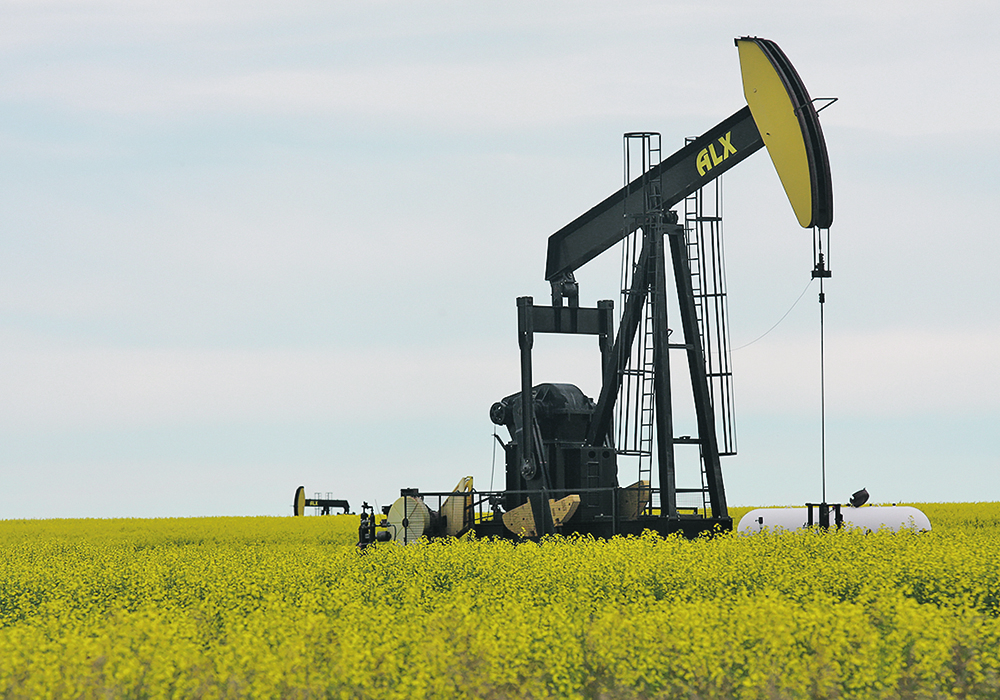Alberta lawyer defends it as way to get action on unpaid compensation, but a surface rights advocate suggests caution
Alberta farmers need to fully understand their options before taking part in any class action lawsuits against energy companies for unpaid compensation for oil and gas wells, says a surface rights advocate.
“I don’t fault law firms for trying to help landowners, but I don’t think this is a solution,” said Daryl Bennett, director of the Action Surface Rights Association.
Farmers not only could end up getting less than what they’re owed by going through the courts, but they will also have to pay expenses such as lawyers’ fees, he said. They should instead go to the Alberta Surface Rights Board.
Read Also

Huge Black Sea flax crop to provide stiff competition
Russia and Kazakhstan harvested huge flax crops and will be providing stiff competition in China and the EU.
However, lawyer Mathew Farrell of Guardian Law Group in Calgary said class action lawsuits are an effective way to hold companies to account.
“(There are a) lot of people out there that aren’t going to spend the time and energy to go through the process of trying to get these claims evaluated on an individual basis, and if we can get them evaluated on a group basis, then we can help a lot more people and that’s the goal here, not to take advantage of people,” he said.
Farrell represents retired farmer and businessperson Reinhold Kautz, who recently launched a class action lawsuit against AlphaBow Energy Ltd. A statement of claim alleges the company is in breach of two Alberta surface rights agreements that do not unilaterally allow for the reduction or termination of annual compensation.
The company is alleged to have told Kautz all surface rental payments were being deferred because of the severe impact of the COVID-19 crisis on the oil and gas industry. The class action lawsuit has not yet been certified by a court, a process that could take until next year to complete, said Farrell.
Bennett said Alberta’s legal system requires every person who is in the same situation involving a defendant in a class action lawsuit to automatically become plaintiffs.
“And if you don’t want to be part of it, you have to opt out and let the lawyers running the class action know that, so a lot of landowners, it may go through without them even really knowing they’re involved.”
He said such farmers could become unsecured creditors if an oil and gas company declares bankruptcy, potentially resulting in their receiving only a fraction of what they’re owed. Farmers who instead go through the Alberta Surface Rights Board are backstopped by the Surface Rights Act “that says if a company doesn’t pay, the government will,” he added.
However, Farrell said people don’t become part of a class action lawsuit until after it is certified, adding that where contact information is available, letters are subsequently sent out telling them how to opt out.
“There is no obligation for somebody to participate … and especially if people want to do this on their own, they’re free to do that.”
Bennett said in an earlier interview that thousands of Alberta farmers have either not been paid by energy companies for the disruption caused by oil and gas wells on their land or their compensation has been cut by 50 to 80 percent.
Farrell said before the current system existed for class action lawsuits, “you had to go and find every single person that this happened to – it was impossible.… It allows those claims to be aggregated to the point where it’s possible and economical for a lawyer to get involved and try and affect some change.”
Annual payments by oil and gas companies can range from $2,000 to $3,000 for grassland to about $6,000 for irrigated land, rising to as much as $30,000 for the latter in exceptional cases, said Bennett. It collectively adds up to millions of dollars.
Most farmers who go through the Alberta Surface Rights Board will get full compensation plus some of the legal costs, he said.
“You’ve got to balance between taking a little longer at the board to get 100 percent plus costs, or you do a class action suit and maybe 50 to 60 percent of what’s owed.”
Bennett estimated lawyers’ fees could be as high as 30 percent of what farmers receive in a settlement, but Farrell said one of the advantages of a class action lawsuit is that it significantly reduces the cost to any one person because it is spread out among many plaintiffs.
Lawyers involved in class action lawsuits must also present their fees to the court to determine if the amounts are fair and reasonable.
“And if the court doesn’t think that they’re fair — the court thinks they were getting too much — they’ll reduce them. They never increase them.”
Farrell said each legal avenue “is fraught with their own perils, and advantages and disadvantages, and this process that we are putting forward is designed to increase access to justice and make sure that people are paid the money owed to them — that’s our goal.”


















